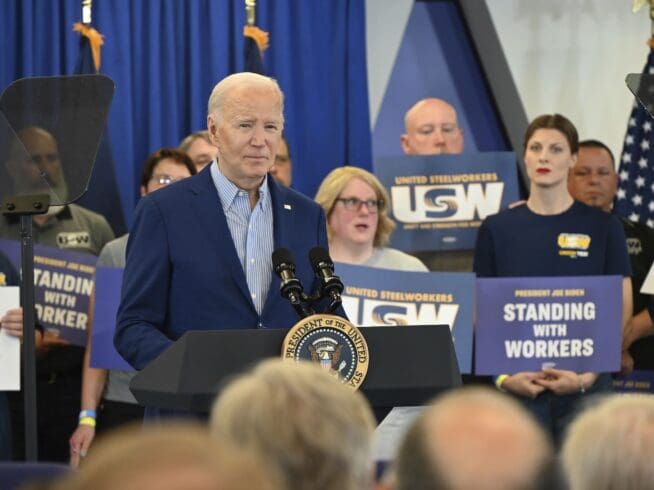State lawmakers want to bring Hollywood to Michigan with tax incentives
Bipartisan legislation would renew a film incentive program that helped bring such productions as ‘Batman vs. Superman: Dawn of Justice’ and ‘Transformers: The Last Knight’ to the Mitten State.

Michigan lawmakers are setting the scene for Act 2 of a film incentive program that brought the production of blockbuster films such as “Batman vs. Superman: Dawn of Justice” and “Transformers: The Last Knight” to the Mitten State.
House Bills 4907 and 4908 would revitalize Michigan’s film incentive program, which was created in 2008 before being shut down seven years later. The new bipartisan legislation, named the Multimedia Jobs Act, would create a tax credit for production companies that film in Michigan.
Supporters of the bills told the Michigan House of Representatives Economic and Small Business Committee at a hearing on Feb. 6 that the production companies would bring jobs for local residents and customer traffic for small businesses.
Less than 10 years after the original program ended, however, some are still hesitant to revisit the issue. Critics say the initial program failed to create a sustainable film industry in the state and there wasn’t a return on investment for Michigan taxpayers. According to a 2010 report from the nonpartisan Michigan Senate Fiscal Agency, the film incentives brought in half of what it cost the state to run the program during its inaugural year in 2008. The report details reasons for the program’s poor performance, including the Great Recession and timing issues associated with the program.
Rep. Jason Hoskins, a Democrat who chairs the Economic and Small Business Committee and a sponsor of H.B. 4907, stressed to committee members that this new set of bills was “scrutinized from every angle” to ensure they wouldn’t encounter the same financial problems as the original program.
Most notably, unlike the old program, which offered a 42% rebate of production costs, the new bills would provide a transferable tax credit. The tax credit would only be able to be used in Michigan, whereas the money from the rebate could be taken out of state.
With the popularity of digital streaming platforms such as Netflix and Hulu, the multimedia industry is one of the largest growing industries in the world, Alexander Page of the Michigan Film Industry Association told the panel. He estimates that if the state enacted the film incentive program, production companies would spend approximately $6 billion-$8 billion in Michigan within the first 10 years.
Under the legislation, eligible productions could receive back in tax credits 30% of total spending for hiring Michigan residents, 20% for hiring nonresidents, and 10% for patronizing Michigan businesses. The state would also offer a 30% credit if the production included a Michigan-specific logo that said something like “Filmed in Michigan” or “Pure Michigan,” or 25% if such a logo were not used. The tax credits would be capped based on the length and duration of the project.
“The worst thing we can do now is just not try and allow Michigan to fall further behind the rest of the nation on this,” Hoskins said.
If the bill passes into law, the incentives would end after 10 years, unless lawmakers decided to continue the program.
As of 2022, at least 35 states, in addition to Washington, D.C., Puerto Rico and the U.S. Virgin Islands have some sort of film tax incentive, according to the National Conference of State Legislatures. Some of the professionals who helped craft legislation around film tax credits in other states helped to put together the Michigan legislation, Hoskins said.
Jacob Whiton, a research analyst with Good Jobs First, said the national watchdog group has been tracking the use of film subsidies since they began gaining popularity in states across the country in the early 2000s. Whiton said the researchers found that such programs come with large costs but result in only small financial returns, which is why he thinks the program funding would be better used to invest in schools, infrastructure and housing.
“Should tax breaks for big companies really take precedence over spending on our schools, our infrastructure, affordable housing?” Whiton said. “I urge members of this committee to leave Michigan’s film tax credit program in the past where it belongs and to prioritize investment in the public goods and services that are the real foundation of our shared prosperity.”




